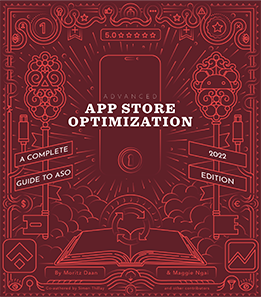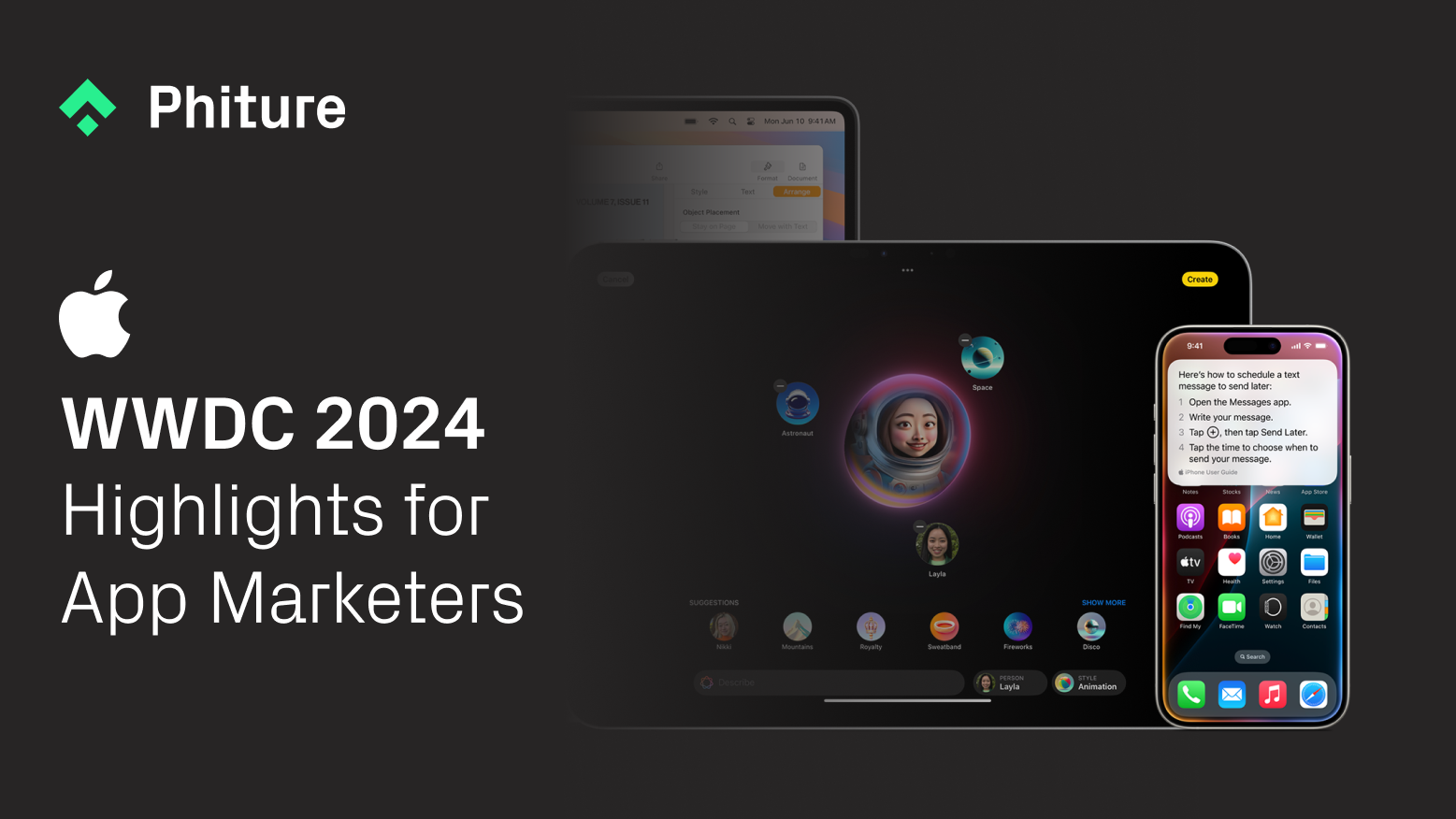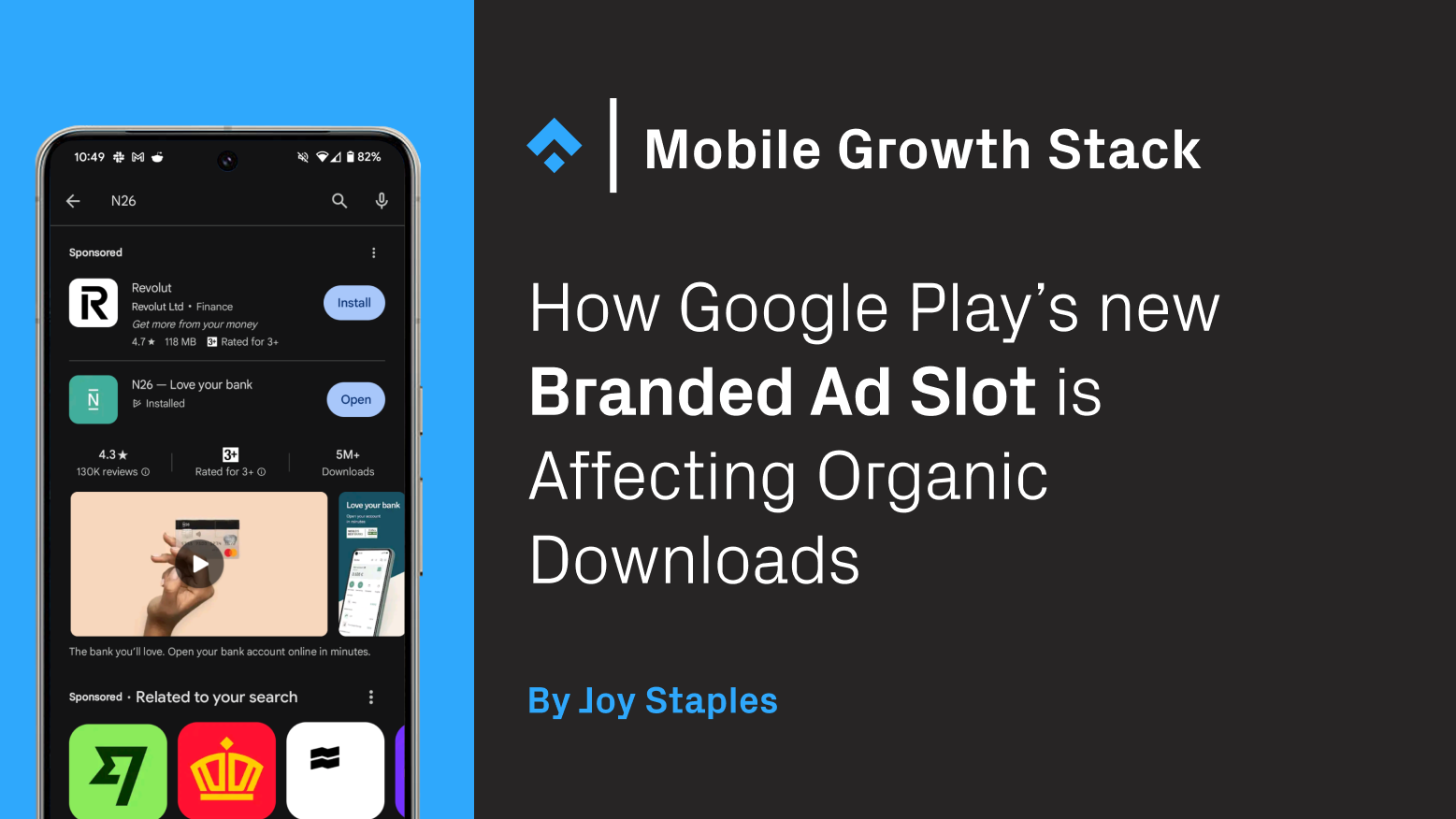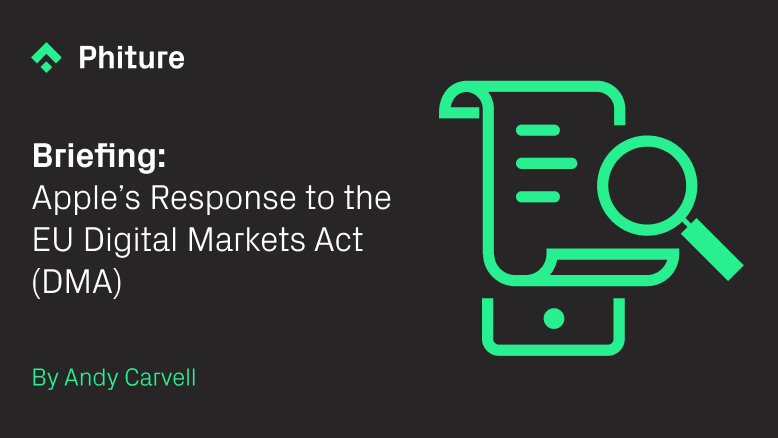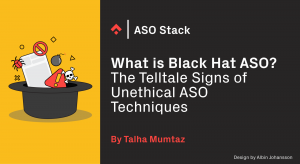
Black Hat App Store Optimization techniques are tactics to artificially increase an app or game’s visibility and conversion by breaking the rules and guidelines of the app stores. While you might recognize the term from its use in reference to Search Engine Optimization (and similarly unethical tactics), the term is derived from American cowboy movies set in the Old West.
The good guys would usually wear white (or lighter) cowboy hats, while the baddies would wear black. There’s also an in-between zone, fittingly called Grey Hat ASO, which, while not strictly forbidden, bends the rules somewhat.
We’re on the good side (of course) and we highly recommend against adopting Black Hat and Grey Hat tactics as they are not only unfair to the competition, but any benefits derived from such practices will be shortlived and may even endanger your reputation and finances. That said, it’s important to understand these ASO tactics so you can spot them at play in the App Stores. In this article, we give you a rundown of four telltale signs of unethical ASO techniques.
What makes certain ASO practices Black Hat?
Both the Apple App Store and the Google Play Store, (and for that matter, every App Store) define a set of rules, regulations, and guidelines every developer, publisher, and/or organization has to follow. These rules and guidelines ensure that app stores are a fair and level playing field, regardless of their app’s size and influence.
For instance, if Apple and Google had not introduced the elements of relevancy and user experience into their respective ad platforms, larger brands would probably outbid all competitors on ad placements due to the sheer size of marketing finances at their disposal.
App developers are therefore encouraged to achieve visibility – and ultimately success – through their own merit by being a great product and using White Hat ASO techniques that play by the rules. As we know at Phiture, achieving ASO success takes time and a lot of dedication and it’s for this reason, some do not play fair. The temptation of quick gains in a short space of time might inspire the exploitation of gaps in the app stores’ guidelines which can be misused for an advantage. While the App Store and Play Store review teams always catch up, malicious tactics can disturb the app stores’ rankings before they’re addressed.
Keyword manipulation
Keyword manipulation is a common black hat practice that a nefarious publisher might use to gain a high ranking. It starts with a vendor offering to sell a publisher hundreds of thousands of installs of an app at a low price. Normally, an install on iOS costs more than on Android.
These installs vary qualitatively. For example, cheaper installs can be delivered using bots. Typically, these are scripts that can download your app using stolen or fake Apple IDs. Bots are easy to spot and review teams normally penalize apps almost instantly whenever they identify an app using bot installs.
Real user installs, on the other hand, are installs by real app store users who get paid for downloading your app. As you’d expect, these cost more to the publisher, but are harder to identify by the app stores’ review teams. Once these installs have been bought in bulk, whether real or scripted, the app jumps up the rankings on desired keywords, and will then even enjoy organic traffic coming from their relative position on the keyword.
To spot such an occurrence, look out for huge spikes in a suspect app’s keyword positions. If it seems too good to be true, especially in a well-established category, then it probably is.
Top charts manipulation
Top Charts Manipulation is one of the oldest Black Hat ASO practices though it isn’t as effective as it used to be, and you’re increasingly unlikely to come across it. In this practice, rogue publishers attempt to reach the top charts by using bots to install their app. Once they reach the top positions in a chart, they receive a great deal explore/browse traffic which in turn helps their app sustain its position without the need for further bot installs.
On iOS, this tactic has limited effectiveness since it is very difficult to access the top charts with the current App Store design – so there is unlikely to be a great deal of explore/browse payoff traffic. That said, on the Play Store, this tactic may still be helping those publishers undertaking unethical ASO practices for this reason, although it must be underlined that the Play Store algorithm is much more advanced and sophisticated, and can easily identify such irregularities and take action against them.
If you notice an app with zero ratings and low quality resting in the top charts, be ready to report it to the Play Store or App Store review team.
Using competitor names
Both Apple and Google strictly advise against using competitor names in your metadata. Even though it is one of the most common tactics and adopted by even the top brands, it can still penalize your app and cause a loss of rankings and reputation.
We will start with an example. Assume you have a pdf reader app. Your most desired keywords should be the generic keywords that can boost your visibility when you start ranking on them. However, for some publishers, an easy approach (or a desire) is to directly target their competitors ranking in the top positions. For a pdf reader app, targeting “pdf reader” is fine. However, targeting “adobe pdf reader” will only cause the review teams to take action against your app as you are trying to rank for a competitor keyword.
How do publishers hide the competitor brand names in their metadata? On iOS, it’s pretty easy. You can add them to the keyword field and as it is not visible to anyone but the app owner, the keywords cannot be observed easily. However, once your app goes into review, chances are that the review team will identify such keywords and penalize your app for using them.
On Play Store, some publishers leverage the A/B testing feature to hide competitor keywords in the long description they run experiments on. As the traffic proportion is very low, they can sometimes get away with it. However, sooner or later, the Google review team will find out the hidden brand names and take strict action against your app.
So the next time you are creating a pool of keywords, make sure to mark competitor names as irrelevant. Phiture has market-leading expertise when it comes to keywords, so if you need assistance, do reach out to learn more about our in-house tools that help us identify the best opportunity keywords for your app.
Manipulating subscription prices
The tactic of manipulating subscription prices requires some knowledge of server or cloud-based backend, and for that reason, is not too common, though it’s worth being vigilant just in case. We have only heard reports of this in the App Store.
It works like this. Our unethical publisher sets a low subscription price for their app. They are discouraged from offering higher prices because they know the app stores’ review team wants to keep a fair balance between the services offered and the price. To illustrate this point, it would be unfair to charge $900 a month for a service other apps are offering for $9.99 a month.
The publisher therefore keeps the subscription at a low price for the Apple review. Once their app passes the App Store review, they use their backend servers to update the price to whatever they want. This often entails hiding the prices as well, so that the users can only see the benefits of upgrading to the premium plan and the free trial that comes with it. Many users subscribe to the plan thinking it will not cost them anything and right after they upgrade, they are charged the much higher amount.
In conjunction with this, Apple requests publishers be clear and upfront with their pricing. A publisher cannot use the word “free” numerous times as it might manipulate the users and trick them into thinking the app is being offered for free when it is actually charging them.
Ratings and reviews
This is another one of the most common Black Hat ASO tactics. As the Google Play Store indexes the words used in the reviews, some publishers tend to buy large amounts of fake reviews, place their desired keywords in these phony reviews, and then launch them on Play Store for their app.
This is not a good idea. Apps have been removed for this in the past, and even some developer accounts have perished for adopting this unethical practice. With iOS on the other hand, publishers are mostly interested in purchasing ratings as it can help them convert more people and cover their negative ratings.
A quick search will show you ratings and reviews can be purchased in bulk at very low costs, so naturally, it attracts many publishers with malicious intent. However, this can really damage your reputation and goodwill from Apple or Google.
Fake ratings and reviews are not hard to spot. Most of these reviews are likely to sound robotic and use the same keywords repeatedly. If you notice a competitor has a sudden influx of poorly worded reviews, you should definitely report it to Apple or Google, as it can upset the whole ranking mechanism and will be unfair to every other app following the right practices.
Before you go
- At Phiture, we can help with combatting Black Hat ASO through our own White Hat ASO techniques, as well as pose solutions to boost your mobile growth. Fill out the form here, and we’ll be in touch.
- Join the ASO Stack Slack channel, a community of ASO professionals who regularly share common ASO problems and pose solutions together, including regarding Black Hat ASO.
- Phiture has relaunched Replika. Replika lets you test app ideas, designs, and concepts — before development. This app stores testing environment is helping marketing teams launch new elements and whole apps or games based on insights created by Replika. Book a demo here today!



